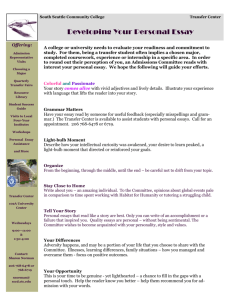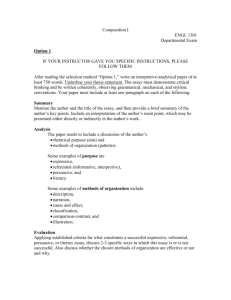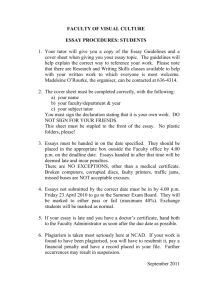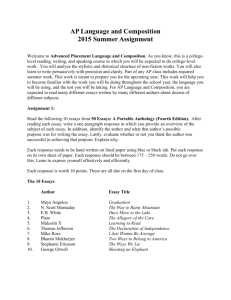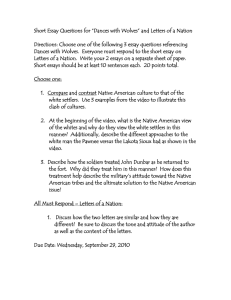TIPS ON GRAD SCHOOL ESSAYS
advertisement
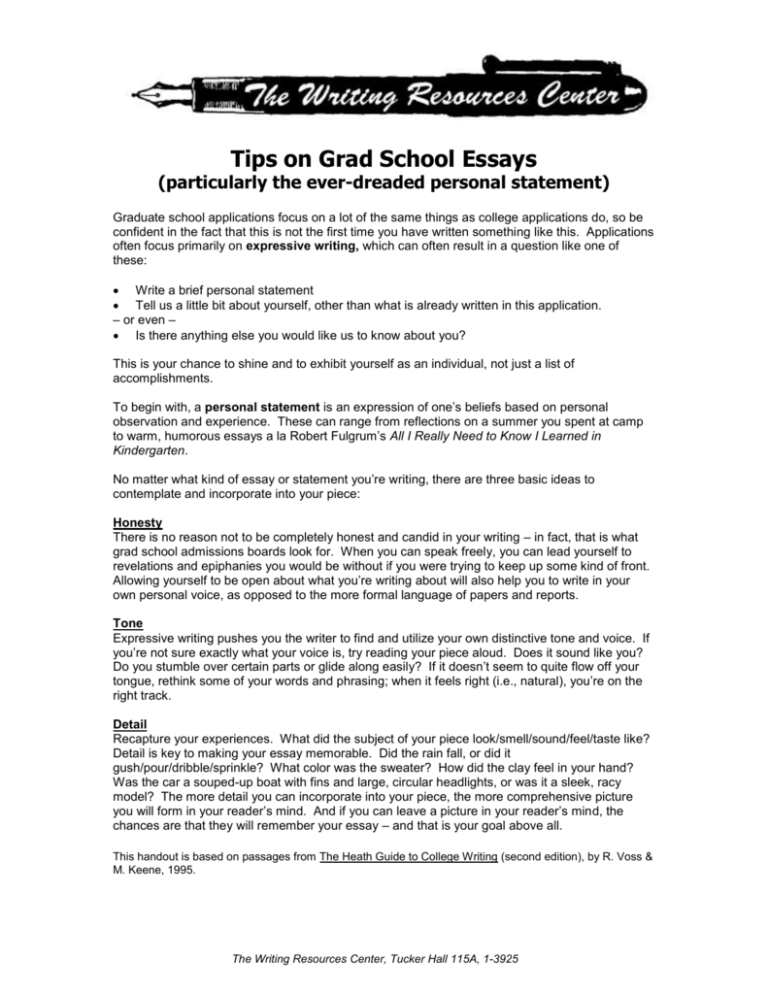
Tips on Grad School Essays (particularly the ever-dreaded personal statement) Graduate school applications focus on a lot of the same things as college applications do, so be confident in the fact that this is not the first time you have written something like this. Applications often focus primarily on expressive writing, which can often result in a question like one of these: Write a brief personal statement Tell us a little bit about yourself, other than what is already written in this application. – or even – Is there anything else you would like us to know about you? This is your chance to shine and to exhibit yourself as an individual, not just a list of accomplishments. To begin with, a personal statement is an expression of one’s beliefs based on personal observation and experience. These can range from reflections on a summer you spent at camp to warm, humorous essays a la Robert Fulgrum’s All I Really Need to Know I Learned in Kindergarten. No matter what kind of essay or statement you’re writing, there are three basic ideas to contemplate and incorporate into your piece: Honesty There is no reason not to be completely honest and candid in your writing – in fact, that is what grad school admissions boards look for. When you can speak freely, you can lead yourself to revelations and epiphanies you would be without if you were trying to keep up some kind of front. Allowing yourself to be open about what you’re writing about will also help you to write in your own personal voice, as opposed to the more formal language of papers and reports. Tone Expressive writing pushes you the writer to find and utilize your own distinctive tone and voice. If you’re not sure exactly what your voice is, try reading your piece aloud. Does it sound like you? Do you stumble over certain parts or glide along easily? If it doesn’t seem to quite flow off your tongue, rethink some of your words and phrasing; when it feels right (i.e., natural), you’re on the right track. Detail Recapture your experiences. What did the subject of your piece look/smell/sound/feel/taste like? Detail is key to making your essay memorable. Did the rain fall, or did it gush/pour/dribble/sprinkle? What color was the sweater? How did the clay feel in your hand? Was the car a souped-up boat with fins and large, circular headlights, or was it a sleek, racy model? The more detail you can incorporate into your piece, the more comprehensive picture you will form in your reader’s mind. And if you can leave a picture in your reader’s mind, the chances are that they will remember your essay – and that is your goal above all. This handout is based on passages from The Heath Guide to College Writing (second edition), by R. Voss & M. Keene, 1995. The Writing Resources Center, Tucker Hall 115A, 1-3925





